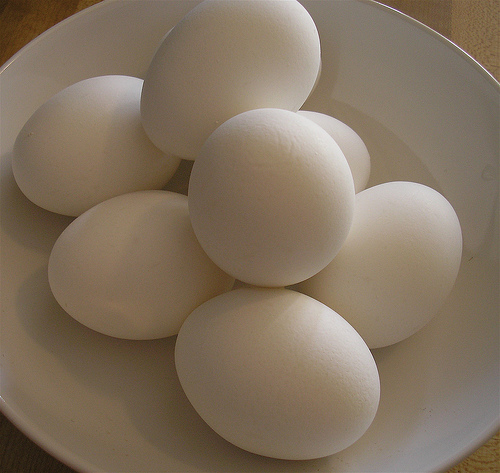Do you know what is in that garbage bag that you placed out by the curb? Are there some moldy fruits, a can of expired beans, and leftover food from Thursday’s dinner? This probably doesn’t seem like a lot, but it can accumulate quickly. The average U.S. household creates about 1.3 pounds of food waste each day, which equals to nearly 15 percent of their food purchases. That is like taking $15 out of every $100 you earn and tossing it in the trash.
Furthermore, the fact that this food waste takes up valuable landfill space is only the beginning of the bad news. Rotting food also releases dangerous methane, which is a greenhouse gas. How dangerous is it? It is 25 times more toxic than carbon dioxide (CO2).
Thankfully, we can work to reduce our daily food waste, and this mini series is going to look at some ways to do that. Here are 5 simple ways to reduce everyday food waste.
1. Organize the Refrigerator
By keeping your fridge in order you can avoid losing track of food that inadvertently gets pushed to the back and forgotten. It is important to keep track of what’s in the fridge. How many times have you gone to the store and bought something that you thought you were out of, only to return home and find it way in the back on the bottom shelf?
Go through your fridge once a week and put half-eaten or half-empty items in plain sight. Storing open items in clear, glass containers is a good idea, as well.
2. Be Flexible with Meal Planning
Announce one meal each week as being a “use-it-or-lose-it” dinner, creating it by using all the food items that you have that are about to spoil but haven’t. Things like smoothies, soups, frittatas, and casseroles are all dishes that embrace items that are soon to spoil, like limp asparagus, wilted carrots, or overripe bananas.
Just because it isn’t perfect doesn’t mean it’s not edible. Cut the bruises off vegetables and fruits, as long as there is no mold. The same is true for bread, and you can even save moldy cheese by cutting around the spoiled part and tossing it out.
3. Plan Well
You have the intention of making a three-course meal from scratch for your family. Then something comes up at work and you end up with a quick 15-minute meal instead. Before shopping, check your schedule and figure your weekly menu around days you know you can cook an elaborate meal. You should plan three days for cooking, two for eating leftovers, and the other two for impromptu meal ideas.
4. Monitor Quantities
Buying exactly what you need can save you 35 percent on your grocery bill. How, you ask? When you buy that pound of beans, do you use all of it? Few people do, so keep track of exactly how much of each product you use and buy exactly what you need to reduce food waste at home.
What are some ways that you guys reduce food waste? Let’s keep the inspiration coming in the comments!
Image Credit: Food Waste photo via Shutterstock









If you’re trying to reduce food waste, your freezer can be your best friend in the kitchen. Use it to store food that would otherwise go off.
The skins, peels, cores, spoiled parts or expired foods can be composted to make rich soil for your garden which decreases the need for artificial fertilizer. All kinds of things can be composted – leaves, branches, dead plants. I even have a separate compost for weeds. With composting and recycling you have just a small amount of garbage that you want to put on the curb for collection. Most of what is in my garbage can is meat scraps and bones and packaging that is not recyclable in my area.